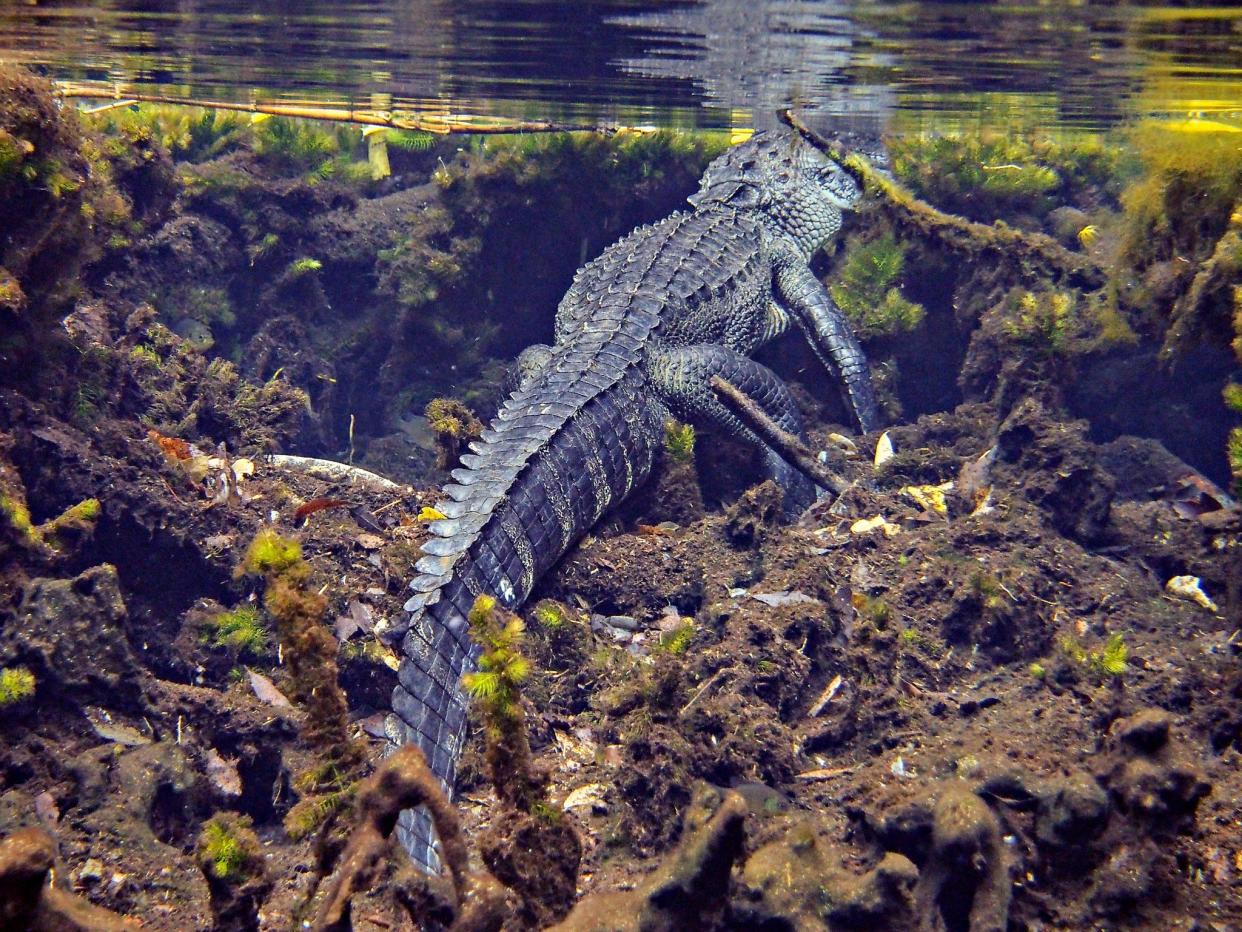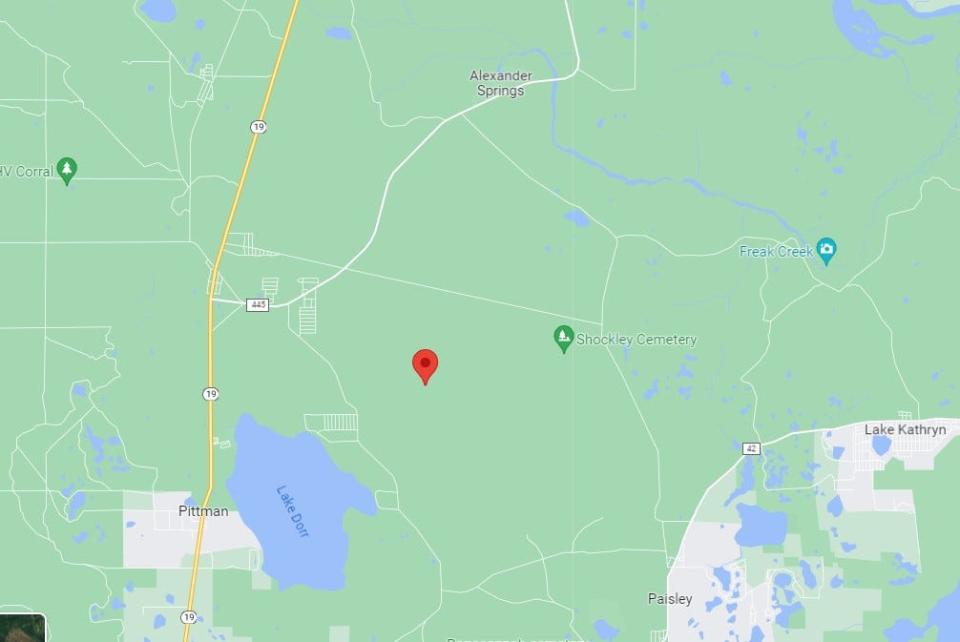Can you believe there was another gator bite in Alexander Springs and a fire nearby?

Two potentially deadly situations invoked fear in Lake County recreation areas of the Ocala National Forest over the weekend.
According to a first responder dispatch, at least 15 acres burned in a human-caused Nov. 4 morning fire in the Ocala National Forest, according to the National Interagency Fire Center. This was a few miles northeast of Lake Dorr and 2.5 miles west of the historic Shockley Cemetery.
The national forest area is scenic with hilly ridges and tall, old pines and oaks lined by beds of wildflowers. The spot is known for its ATV, horseback riding and hiking trails.
The Daily Commercial contacted Lake County Fire Rescue and the U.S. Forestry Service for comment but did not hear back as of this writing.
A few miles north at Alexander Springs, the popular recreation area closed briefly after another alligator encounter. In July, the area closed for a few days after a snorkeler was bitten on the head by a nearly 8-foot gator and left with puncture wounds. Divers are drawn to the large basin that features a craggy limestone cavern by the spring source.
Scubadiving.com named the turquoise, 72-degree pool all year-round "the best Florida dive site for newly certified divers."
"The Alexander Springs swim area is now reopened following a brief closure today," the U.S. Forestry Service reported in a Facebook post at 2:02 p.m on Monday (Nov. 6.) "The temporary closure was necessary for public safety following an alligator-related incident this morning. The Florida Fish and Wildlife Conservation Commission immediately responded and completed their investigation. No alligators were harmed or removed from the area, as result of this investigation."
According to a report on WCJB Channel 20 in Gainesville, two snorkelers have been bitten on the head in recent days.
"FWC responded to a report of a 20-year-old woman who was bitten by an alligator and received non-life-threatening injuries while snorkeling at Alexander Springs in Lake County," the report said.
"The FWC responded to the scene, and the victim was taken to a nearby hospital for treatment. An FWC officer and contracted nuisance alligator trapper responded, and a 9-foot male alligator was removed."
The FWC also offers a Statewide Nuisance Alligator Program (SNAP). "The goal of SNAP is to proactively address alligator threats in developed areas, while conserving alligators in areas where they naturally occur," explained Kristen Turner, FWC public information director for the northeast region.
SNAP uses contracted nuisance alligator trappers throughout the state to remove alligators believed to pose a threat to people, pets or property.
"People with concerns about an alligator should call FWC’s toll-free Nuisance Alligator Hotline at866-FWC-GATOR(866-392-4286), and we will dispatch a contracted nuisance alligator trapper to resolve the situation," Turner added.

Because of dry conditions, forest fires are at a moderate risk as of this writing. If you're recreating in the forest, please use caution and check the forestry website at fs.usda.gov/alerts/florida/alerts-notices for alerts and locations of prescribed burns and closures.
The FWC works to keep Floridians and visitors informed and recommends the following precautionary measures near alligators, including in or near the water, to reduce the chances of conflicts with alligators:
ICYMI in Alexander Springs in 2018 ... Gator trees teen girl; is shot dead
If you see a gator, the FWC recommends the following:
Keep pets on a leash and away from the water’s edge. Pets often resemble alligators’ natural prey.
Swim only in designated swimming areas during daylight hours and without your pet. Alligators are most active between dusk and dawn.
Never feed an alligator. It’s illegal and dangerous. When fed, alligators can lose their natural wariness and instead learn to associate people with the availability of food. This can lead to dangerous circumstances for yourself and other people who could encounter the alligator in the future.
This article originally appeared on Daily Commercial: A forest fire and gator attack in Lake County over the weekend?

